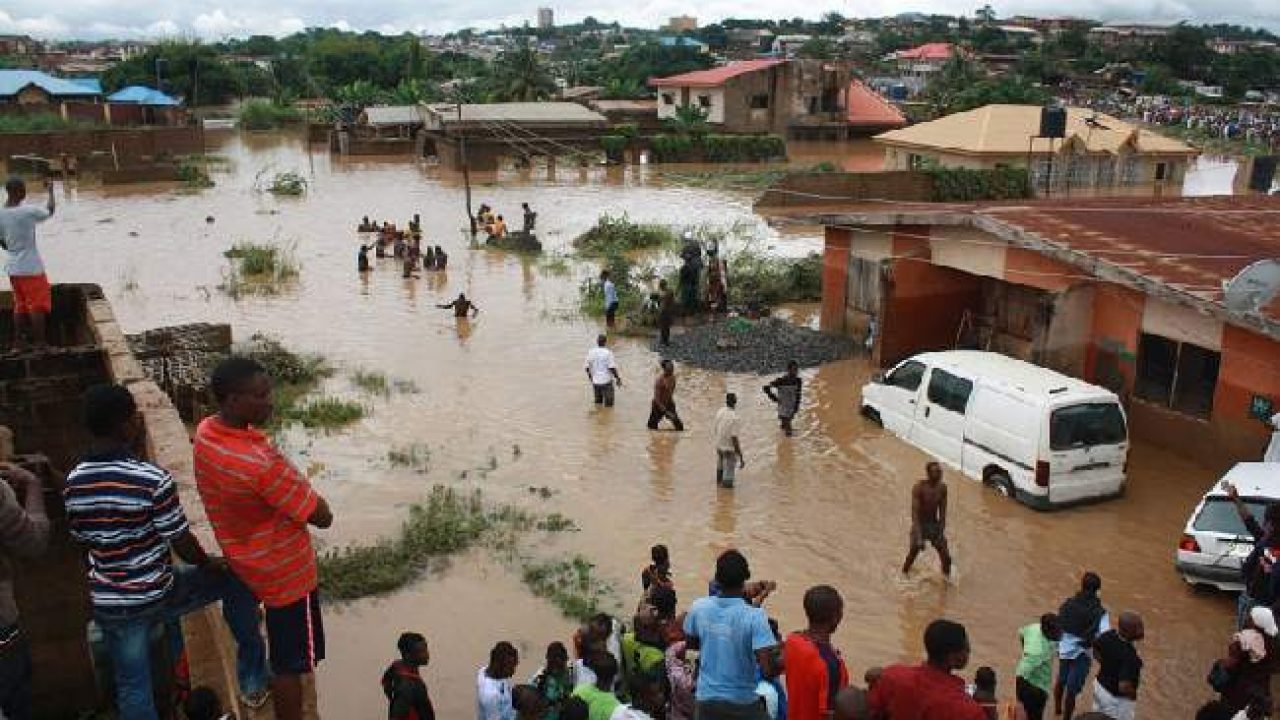Nigeria is currently experiencing one of the catastrophic effects of climate change across the country – flooding.
The 2022 floods described by experts as the worst Nigeria has experienced since 2012, have destroyed crops in over 500,000 hectares of farmlands belonging to thousands of smallholder and commercial farmers across the country.
- Nobody will sack me as PDP chairman – Ayu
- Police arrest ‘notorious cultist’ going for operation in Ogun
There are pains and agony as numerous households are displaced, businesses shattered, investments and livelihoods of many farmers washed away within the tinkle of an eye, among other agonizing consequences.
As if that is not enough, drought which is another element of climate change that also negatively impacts socio-economic growth, is projected to become more severe in the future as a result of climate change.
President Muhammadu Buhari last week said flooding in different parts of Nigeria as well as encroaching desertification and drought from the northern part of the country are negative fallouts of climate change.
Buhari spoke in Seoul, South Korea, at an audience he granted the former United Nations Secretary-General, Ban Ki-Moon, on the sidelines of the First World Bio Summit 2022.
Daily Trust highlights some of the major ways climate change affects Nigerians.
Low crop yield
In Nigeria, crop production depends on location and climatic conditions. Crops that need rainfall to grow are abundant in the south, while those that don’t need rainfall grow more in the north.
Excess rain and drought associated with climate change affects this natural distribution of crops in Nigeria and reduces their production in large quantities to meet the population’s demand.
Climate change, therefore, may cause stunted growth of some crops grown in Northern Nigeria because these crops don’t thrive in soils flooded with water from excess rain. Likewise, some crops cultivated in southern Nigeria may wither during prolonged drought periods because these crops need rainfall to grow.
Food shortage
Food scarcity is a consequence of low crop yield, which is characterized by low quality and quantity of food crops because of harsh climate conditions. Therefore, food crops are poorly distributed to other geopolitical zones where such crops don’t grow.
For instance, tomatoes are produced in large quantities in the north and if this declines due to unfavorable climatic conditions, other locations in Nigeria will experience reduced supply.
Reduced livestock production
Livestock animals like goats and cows feed on grass to grow, and their products such as beef and milk are affected when these animals don’t feed well.
Irregular climatic conditions destroy the grassland these animals graze on. Also, flooding fuels pests that attack these farm animals and further depreciate their overall commercial value.
Loss of income
Agriculture is one of the major contributors to the Nigerian economy and source of income for many Nigerians. These individuals are either rural dwellers who are full-time farmers or urban dwellers who are part-time farmers.
Climate change destroys farmlands and depletes income from agriculture and livestock farming at national and individual levels.
Public health crisis
Climate change increases the burden of diseases in Nigeria, especially malaria. Mosquitoes breed in stagnant waters and they spread to cause malaria through bites. Life-threatening malaria complications are common, especially among children under 5, according to the World Health Organization. This can put a strain on the health care system.
Also, wildfires and dust storms occur during drought, and these environmental hazards cause respiratory illnesses in many individuals. Climate change increases the number of diseases and causes preventable deaths among Nigerians if left unchecked.
Decreased hydroelectric power supply
Nigeria generates a significant amount of power from its hydro power plants. Climate change causes unpredictable rainfall and drought patterns that reduce or increase the water level in Kainji Dam and others.
During drought, the amount of hydro power generated declines and it affects power distribution nationwide. This affects industrial activities which depend on constant power supply to run their plants.
Also if it dramatically increases as experienced this year, it causes severe flooding around its neighbouring communities.
Loss of shelter, road networks
Rural communities suffer most from the negative impact of flooding. Some houses in rural communities collapse during heavy floods. Also, rural dwellers can’t commute during flooding because water obliterates the road networks.




